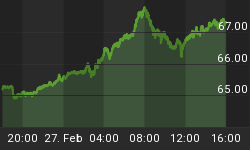In just one month, the coronavirus outbreak blew out to a full-on pandemic, threatening to tip the global economy into recession and affecting every country, industry, and supply chain.
Many analysts focus on how the pandemic will be wiping out 10 million barrels per day of global oil demand, forcing oil prices to four-year-lows (and possibly lower), potentially bankrupting many U.S. shale producers, and bringing fiscal pain to oil producing economies, including those of the former allies Saudi Arabia and Russia who are now locked in a bitter dispute over market share.
But the pandemic and the looming recession will spare no industry or energy-related sector, inflicting pain to clean energy industries from solar power to electric vehicles (EVs) sales, too.
Electric vehicles may be heading for the decade in which they will reach price parity with conventional cars, but in the short term, there will be pain, for both EVs and gasoline car manufacturers, analysts tell Bloomberg.
First, low oil prices, hence cheap gasoline, for a sustained period of time could encourage more buyers, especially in the U.S., to stick to conventional internal combustion engine (ICE) vehicles and defer buying an electric car.
Then, the bigger picture for the short term is that consumers all over the world, panicked from the pandemic, are hoarding food and toilet paper and will not be thinking of buying a new car, any car, over the next few months. Vehicle sales have already crashed in China, the world’s largest auto market, and if global recession hits—and recession is now the base-case of many analysts—sales everywhere will slump year on year. EV sales typically follow the general overall car market in a country, so they are also set to drop. Related: Is The Mining Industry Prepared For A Coronavirus Commodity Slump?
The Covid-19 pandemic is already weighing on every clean energy sector, BloombergNEF said in a note last week, shared by BloombergNEF’s Chief Content Officer Nat Bullard.
Overall vehicle sales in China have plunged by 44 percent year on year, according to data as of March 12, according to BloombergNEF.
Many countries in Europe are under partial or full lockdown. Norway – not a big market in terms of number of consumers especially compared to China, but the most advanced market in terms of EV penetration – has imposed its most drastic measures outside wartime to try to flatten the curve in coronavirus cases.
American consumers are also urged to work from home if possible and practice social distancing as infections grow. In addition, U.S. consumers now see the cheapest gasoline prices so far this year, and chances are high that prices will drop further in the coming days and weeks.
“AAA expects gas prices to continue trending cheaper, with the high likelihood of the national average hitting $2/gallon before the end of March,” AAA spokesperson Jeanette Casselano said on Monday.
While prices are coming down, ‘stay at home’ policies are set to impact fuel demand, so consumers won’t be able to fully enjoy the cheap gasoline prices.
Consumer sentiment during the pandemic is expected to reduce overall vehicles sales, which will in turn drag down EV sales. Cheap gasoline, if it stays for months, may also play a part in consumer choices for buying a car, once things and life returns to normal.
Then, governments’ response to the crisis and looming recession may overlook clean energy technologies, the International Energy Agency (IEA) warned. Related: Is It Time To Buy The Blood On The Streets?
IEA’s Executive Director Fatih Birol urged on Saturday governments not to abandon their clean energy targets while they scramble to save struggling economies in the coronavirus crisis.
“IEA analysis shows that governments directly or indirectly drive more than 70% of global energy investments. They have a historic opportunity today to steer those investments onto a more sustainable path,” Birol wrote in a commentary.
“Governments can use the current situation to step up their climate ambitions and launch sustainable stimulus packages focused on clean energy technologies. The coronavirus crisis is already doing significant damage around the world. Rather than compounding the tragedy by allowing it to hinder clean energy transitions, we need to seize the opportunity to help accelerate them,” the IEA’s head said.
Beyond the short-term shock from the Covid-19 pandemic, the 2020s could still be the decade of the EVs.
“Cheaper batteries, faster charging and greater ranges will make the 2020s the decade of the electric vehicle,” Ram Chandrasekaran, Principal Analyst, Transportation & Mobility at Wood Mackenzie, said in an analysis last month.
“BEVs are expected to reach price parity with conventional vehicles at point of sale in this decade,” Chandrasekaran said in mid-February.
By Tsvetana Paraskova for Oilprice.com
More Top Reads From Safehaven.com:
















